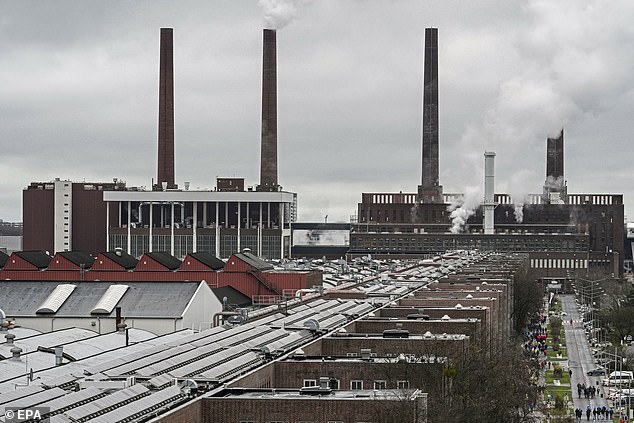Germany has been declared “world champion of sick leave” by the country’s largest insurer, as it revealed that struggling Germans take an average of 20 days off each year.
The staggeringly high number of sick days is well above the European Union average of just eight days per year and is a further impact on Germany’s growing reputation for having a poor work ethic.
The high number of sick leaves in Germany was revealed thanks to an investigation by the health insurer DAK.
They, in words reported by The timesstated that the sharp increase in sick days across the country since 2022 was partly due to the increase in colds and Covid cases.
It is the employers who paid the price for the large number of absences, which cost them a whopping 77 billion euros in salaries.
Including €19 billion from health insurers, this is equivalent to six percent of the country’s national social spending.
Currently, Germans are entitled to six weeks of full pay if they are unable to work for health reasons.
With the German economy faltering and its workers now working significantly fewer hours than their counterparts in the EU and Britain, business leaders have come up with their own solutions to tackle the high number of sick days and revive the economy.
Germany has been declared “world champion of sick leave” by the country’s largest insurer, as it is revealed that struggling Germans take an average of 20 days off each year (file image)

A worker on the Volkswagen assembly line in Wolfsburg, Germany. It is the employers who paid the price for the large number of absences, which cost them 77 billion euros in salaries.
Oliver Bäte, chief executive of Allianz SE, has proposed reintroducing a system abolished in 1970 under which workers lost their pay on the first day of illness unless they had a medical certificate.
A policy that is still applied in many countries such as Spain and Greece.
Speaking to German media, he noted that Germany would save €40 billion if it could reduce the number of workers taking sick days.
Mr Bäte said: “In countries like Switzerland and Denmark, people work an extra month a year on average, with comparable salaries.”
His suggestion has been praised by other business leaders, but sparked protests from unions and political parties.
Hans-Jürgen Urban, board member of the engineering union IG Metall, said: “The German economy will not recover with sick employees, but on the contrary with better working conditions.”
He also claimed that making workers pay for the first day of sick leave was an “assault on the welfare state”.

The German automaker’s Volkswagen main factory in Wolfsburg, Germany. For the first time in its history, the automaker announced job cuts for the first time in its history in December.
Dennis Radtke, a member of the European Parliament for the centre-right CDU, called Bäte’s suggestion “class warfare from above”.
Meanwhile, Europe’s largest economy has been reeling in recent months as German industry titans such as Volkswagen announced job cuts for the first time in their history last month.
It was the only G7 economy to contract in 2023 and the IMF estimates it will remain the group’s worst-performing economy in 2024, with disastrous zero percent growth.
However, the other G7 members are not faring much better, with neighboring France recording an estimated growth of just 1.1 percent and the United Kingdom recording meager growth of just 1.5 percent.


